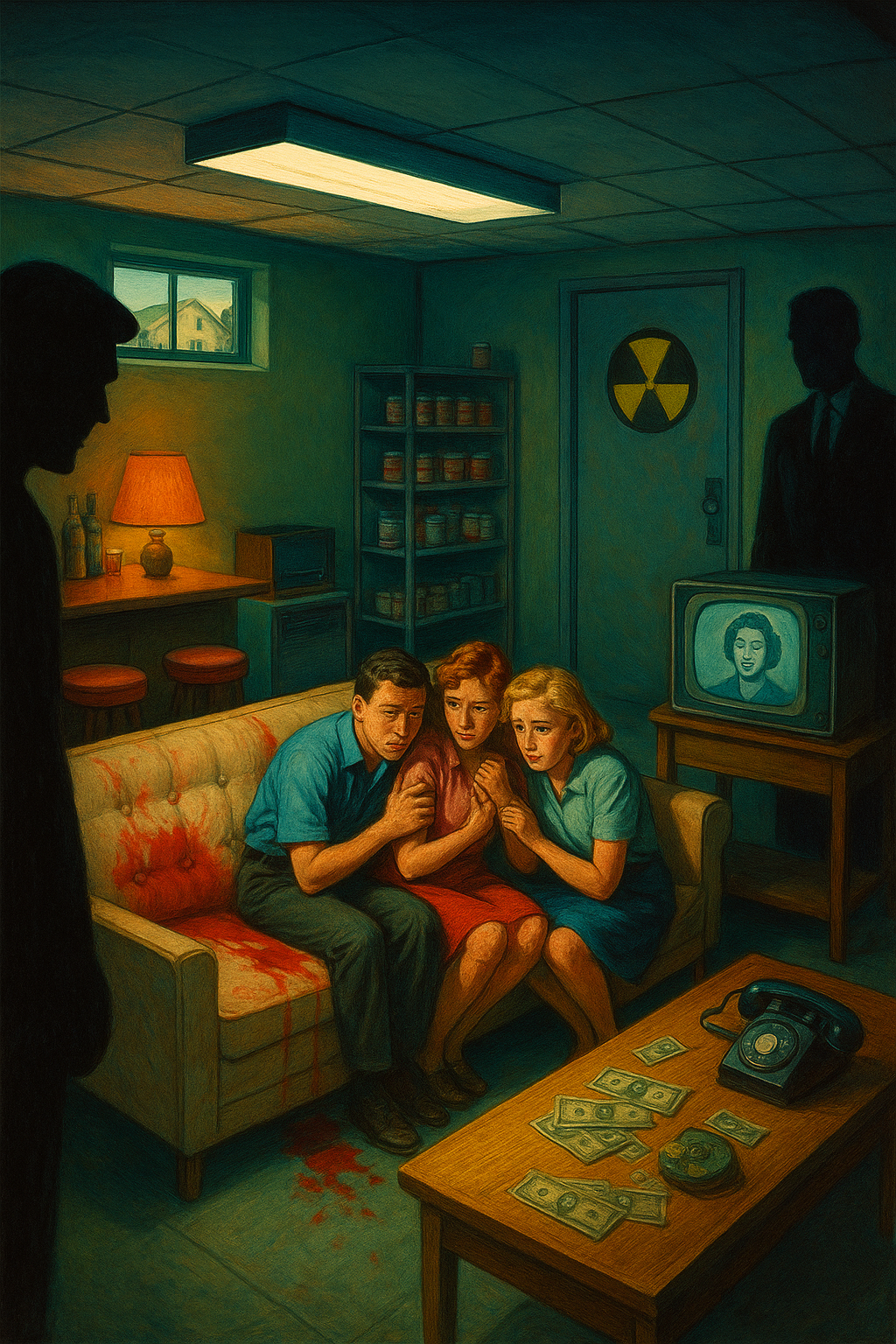ARE YOU POPULAR — A Play by Alan Brody
Set in Rockville Center, Long Island in November 1956, Are You Popular? exposes the dark underside of postwar American prosperity. Seventeen-year-old Brenda Cohen discovers she's pregnant by her boyfriend Gary and confides only in her unpopular friend Noah Greisinger, who desperately tries to help her find an illegal abortion.
The story unfolds in the Cohens' basement recreation room, a symbol of their newly acquired suburban wealth. Brenda's father Howie has transformed himself from a Brooklyn shoe salesman into a successful but ruthless businessman, complete with plans for a fallout shelter and dreams of real estate development. Her mother Alice lives vicariously through Brenda's dancing ambitions while struggling with the isolation of suburban life.
As Brenda, Noah, and Bobby Black scramble to raise money for the abortion, the adult relationships around them begin to unravel. Howie is having an affair with Barbara Greisinger (Noah's mother) while manipulating her husband Jerry, his business partner, through threats and lies about Jerry's supposed communist sympathies. The women bond over shared loneliness and lost friendships from their Brooklyn days.
When the abortion goes catastrophically wrong, Brenda nearly bleeds to death in the family rec room. The crisis strips away all pretenses: Alice finally sees her husband's true nature and banishes him to his own fallout shelter, while Barbara realizes she must return to her decent but war-traumatized husband Jerry, who has already quit Howie's business to work with competitors.
The play climaxes with Alice's transformation from submissive wife to empowered woman who demands her husband reform completely before she'll take him back. She offers him Jerry's job - but only if he can become honest and decent. The title's bitter irony becomes clear: in 1950s America, being "popular" often meant being complicit in a system built on lies, manipulation, and moral compromise.
Part of Brody's Victory Blues Trilogy, the play traces how the promise of postwar prosperity corrupted the values that supposedly won the war, leaving families fractured and individuals struggling to reclaim their authentic selves from the roles society demanded they play.

